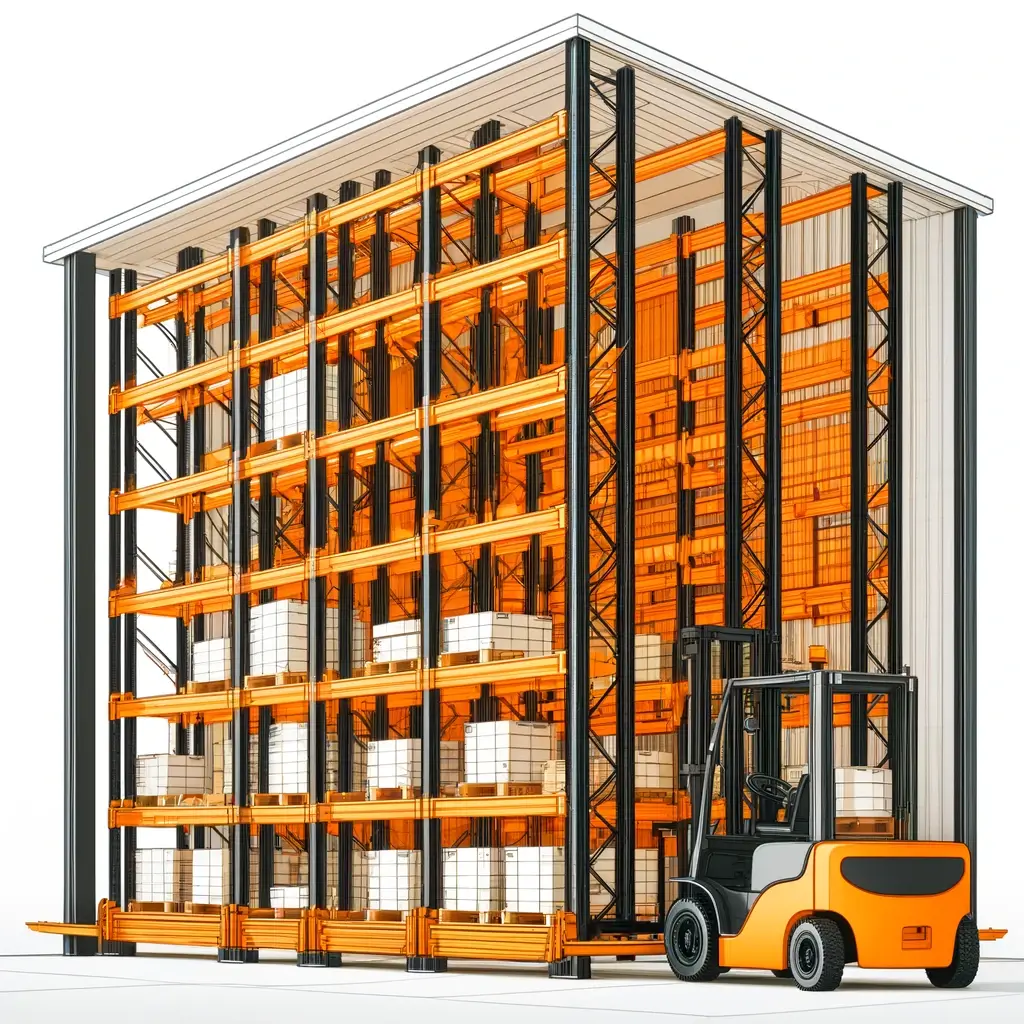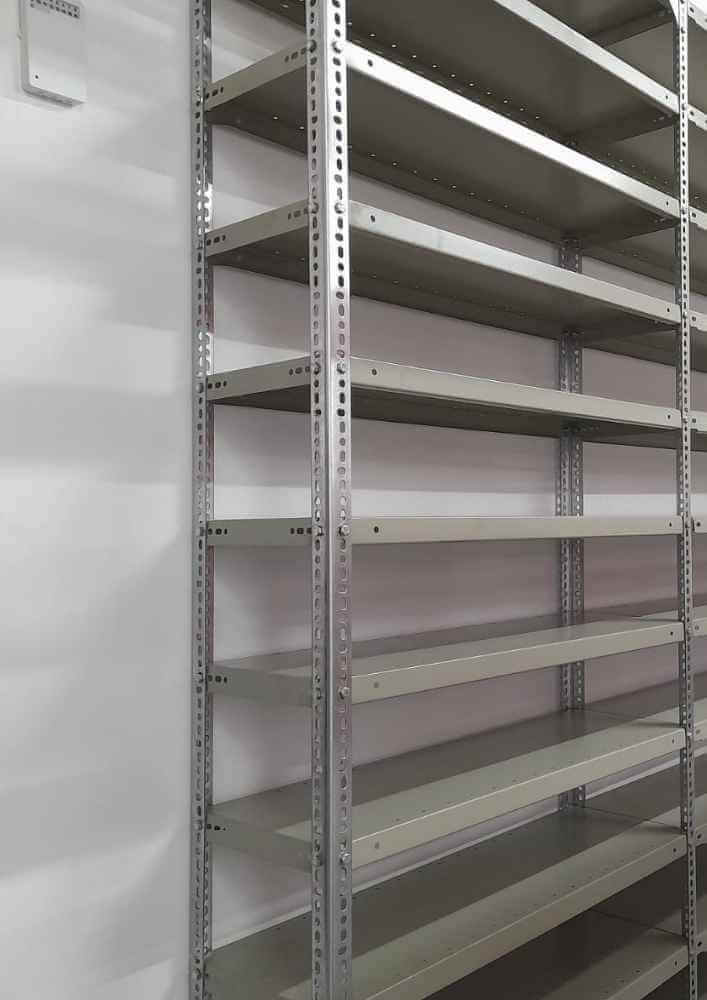Efficient storage solutions are crucial for the smooth operation of warehouses and industrial facilities. Proper racking and shelving systems not only optimize space utilization but also enhance organization, safety, and productivity. In this blog post, we will explore various types of racking and shelving systems, the benefits they offer, and key factors to consider when selecting the right storage solutions for your needs.
Types of Racking Systems
Pallet Racking
Pallet racking is a versatile storage system designed to store palletized materials, providing a practical solution for organizing and optimizing warehouse space. By stacking pallets on these racks, warehouses can significantly increase their storage capacity without expanding their physical footprint. This not only maximizes space utilization but also enhances accessibility and inventory management, making it easier to locate and retrieve items quickly.
The adaptability of pallet racking systems makes them suitable for various warehouse environments, from small storage facilities to large distribution centers. Different types of pallet racking, such as drive-in, and push-back racking, cater to specific storage needs and operational requirements. This flexibility ensures that businesses can tailor their pallet racking systems to meet their unique demands, improving overall efficiency and productivity in their storage operations.

Cantilever Racking
Cantilever racking is ideal for storing long, bulky items such as pipes, lumber, and steel bars. It features arms that extend from a central column, providing easy access and flexibility.

Drive-In Racking
Drive-in racking allows forklifts to drive directly into the storage lanes, making it perfect for high-density storage of homogeneous products. It maximizes space by minimizing aisles

Push-Back Racking
Push-back racking systems use a series of nested carts that move along inclined rails. This system offers high-density storage and is suitable for storing multiple pallets of the same SKU.
Types of Shelving Systems
Shelving systems provide accessible and organized storage for various items. Here are some common types of shelving systems:
Gondola/Supermarket Shelving

Gondola shelving consists of modular units that can be customized and arranged to fit the specific needs of a retail space. These units typically include a flat base and vertical components with adjustable shelves, allowing for the display of products at various heights. The shelves are often double-sided, providing maximum display space, and can be easily reconfigured to accommodate different merchandise.
Bolted Shelving

Bolted shelving, as the name suggests, involves shelves that are secured together using bolts. The system typically consists of vertical posts, horizontal beams, and shelves, all fastened together to create a sturdy and stable storage unit. The design allows for the assembly of shelves at different heights, providing flexibility to accommodate items of varying sizes.
Factors to Consider When Choosing Racking and Shelving
Selecting the right racking and shelving systems involves several important considerations:
Load Capacity and Weight Requirements
Ensure the chosen system can handle the weight of the stored items. Overloading can compromise safety and lead to damage.
Accessibility and Ease of Use
Consider how frequently items need to be accessed and how easy it is to retrieve them. This is crucial for maintaining workflow efficiency.
Durability and Material Quality
Choose systems made from high-quality materials that can withstand the rigors of daily use. Durability ensures long-term performance and safety.
Customization and Scalability Options
Opt for systems that can be customized to fit specific needs and can be scaled up as your storage requirements grow.
Maintenance Tips for Racking and Shelving Systems
Proper maintenance is essential to ensure the longevity and safety of your racking and shelving systems. Here are some detailed tips to help you keep these systems in top condition:
Regular Inspections and Safety Checks
Conduct routine inspections of your racking and shelving systems to identify any signs of damage or wear. Look for bent beams, loose bolts, or other structural issues. Addressing these problems promptly can prevent accidents and prolong the life of your racking and shelving units.
Cleaning and Upkeep of Shelving Units
Keep your racking and shelving systems clean and free from dust and debris. Regular cleaning not only enhances the appearance of your storage area but also helps in maintaining a safe and organized environment. Ensure that all surfaces, including the nooks and crannies of the shelving, are thoroughly cleaned to prevent the buildup of potentially harmful materials.
Ensuring Proper Weight Distribution
Avoid overloading your racking and shelving systems. Distribute weight evenly across all shelves to prevent structural damage and ensure stability. Overloading can lead to sagging shelves or even collapse, posing serious safety risks. Make use of load labels and guidelines provided by the manufacturer to maintain safe weight limits.
Addressing Wear and Tear Promptly
Regularly check your racking and shelving systems for signs of wear and tear, such as rust, corrosion, or damaged components. Replace any damaged parts and make necessary repairs immediately to maintain the integrity of the storage system. Keeping your racking and shelving in good repair will ensure they remain safe and functional for years to come.
Conclusion
Choosing the right racking and shelving systems is essential for maximizing storage efficiency and maintaining an organized workspace. By considering factors such as load capacity, accessibility, durability, and customization options, you can select storage solutions that meet your specific needs. Regular maintenance and inspections ensure the longevity and safety of your systems, providing reliable storage for years to come. Invest in quality racking and shelving solutions from Duzi Storage Solutions to optimize your storage space and enhance productivity.



